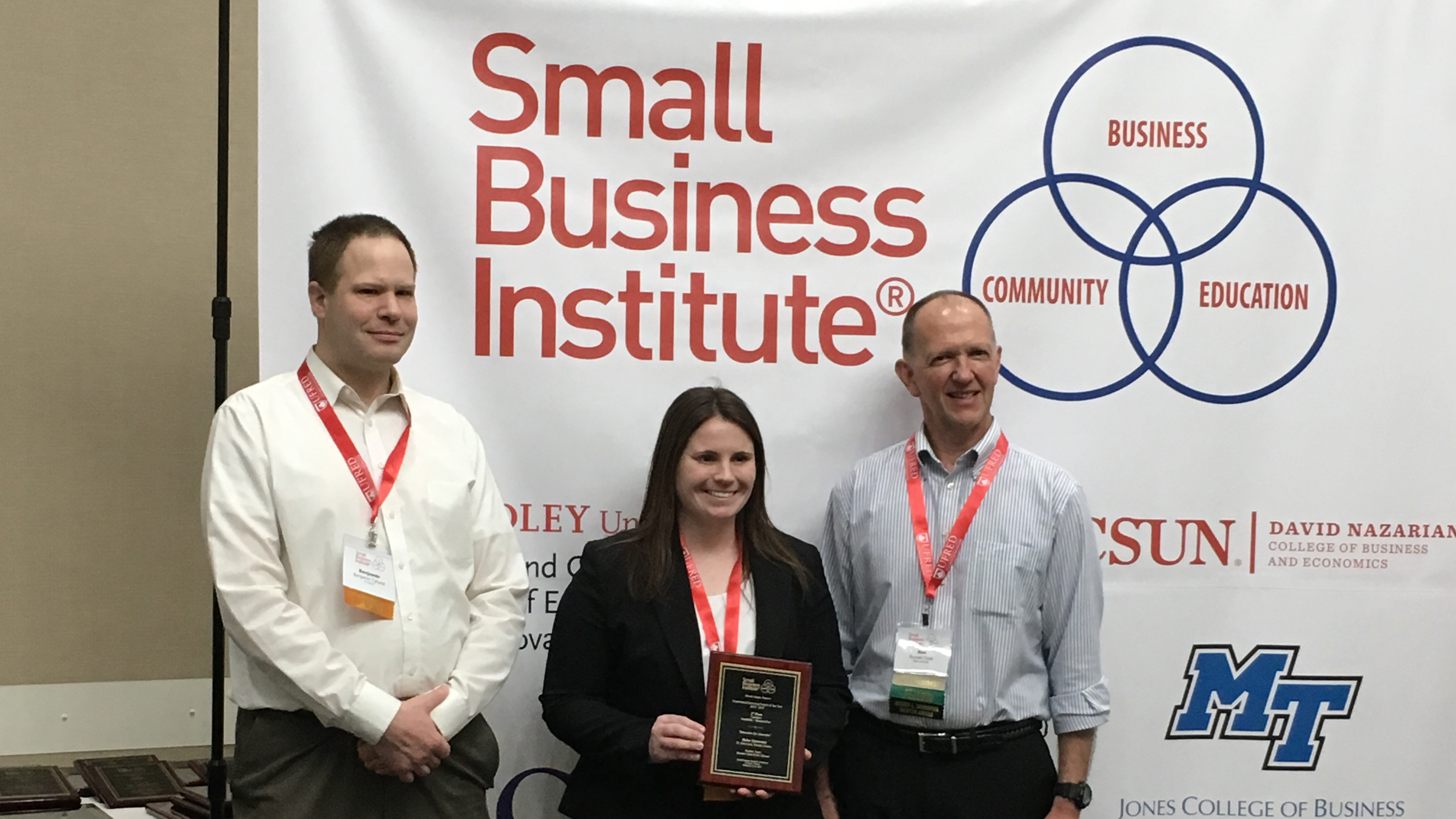Wednesday, Apr 3, 2019
For the 16th time, Rider makes top 10 for the Small Business Institute Consulting Project of the Year competition
by Megan Lupo
Rider’s team earned second place in the national Small Business Institute Consulting Project of the Year competition for its spring 2018 consulting report. Monica Clark ’18 and Ben Tyhurst ’18 are now a part of Rider’s longtime success with the competition.
Since 1998, when Rider began competing in the competition, the graduate students have had 16 top 10 national finishes with two first-place, six second-place and two third-place rankings so far.
Associate Dean of Graduate Programs Dr. Ronald Cook is proud to see his student teams succeed year after year.
“They really dive in, roll up their sleeves and really learn the process and the projects,” he says.
The competition teams are derived from Cook’s graduate consulting classes. Students act as consultants for small firms or organizations, primarily local to the campus. Matossian Eye Associates, a multi-specialty integrated ophthalmology and optometry practice in Pennington, N.J., was Clark’s and Tyhurst’s client for the project.
“Our project was a feasibility project, seeing if Matossian Eye Associates could implement non-mydriatic cameras, [which would allow eye doctors to view the retina in detail] into primary care offices to hopefully detect eye diseases earlier, especially in diabetic patients,” Clark says.
Clark, who was a senior finance major when she competed at the graduate level because of her advanced amount of credits, says that she is thankful for the real-world insight the project provided.
“Dr. Cook has a lot of knowledge in the business world and getting a chance to work with him firsthand on the consulting project was a great experience,” Clark says, who also had Cook as a professor her junior year. “I am very grateful for all I have learned from him over the past two years.”
Tyhurst, who graduated with a master’s in business administration and is considering a consulting career, says the experience allowed him to practice various aspects of field needed to become a professional.
“Our biggest challenge was not only finding an answer but finding the best one that could be applied for a real situation,” Tyhurst says. “We were lucky to have worked with people and sources that provided useful and accurate information from several angles that helped us have confidence in the answers we discovered and would later present.”
The ability to work with a real client, identify an issue, research potential solutions and present a solution are critical thinking skills needed to succeed in the field, Cook says.
“If you can do that and work through unknown situations, it’s a very, very transferable skill,” he says. “I think that makes a big difference in terms of how that makes them stand out in respect to other applicants for a job.”

